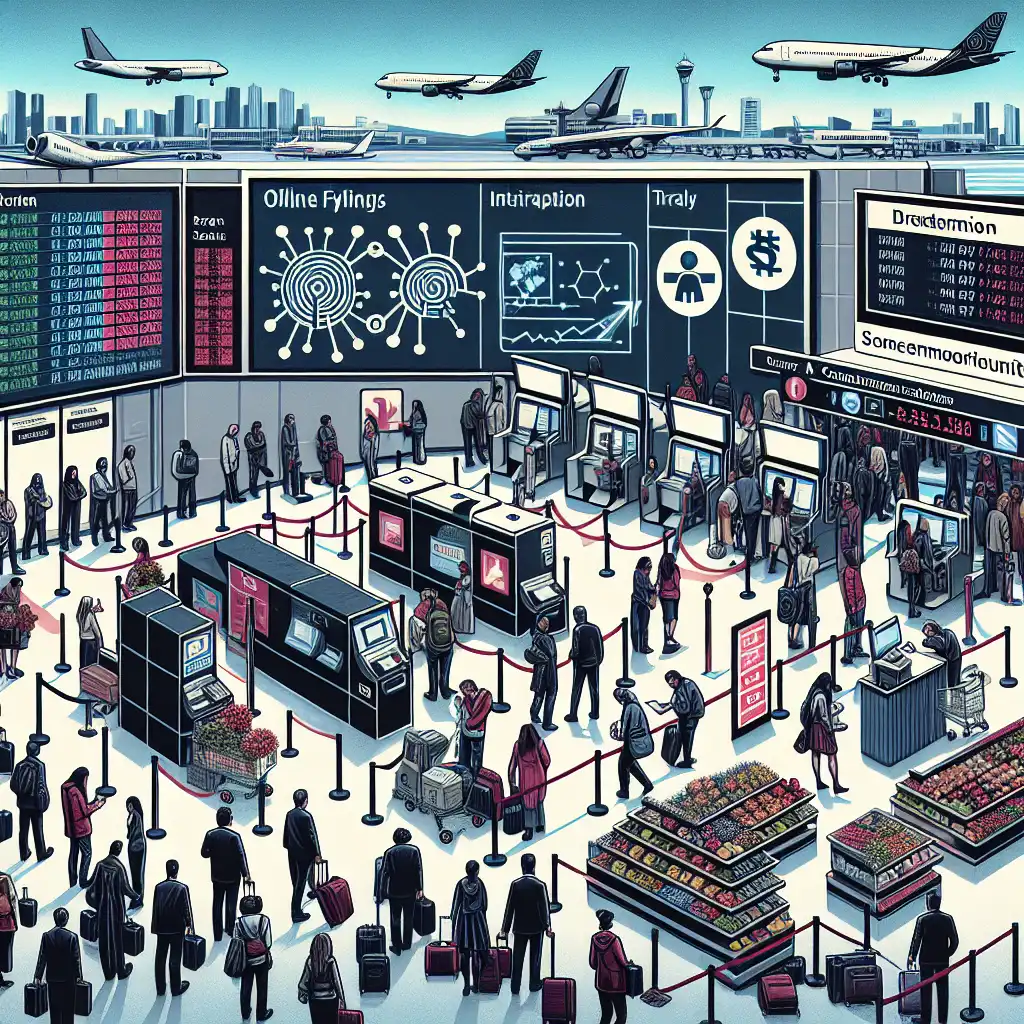Global IT Outage Hits Airports, Banks, Supermarkets

Major IT Outage Linked to CrowdStrike Disrupts Banks, Airports, and Businesses Globally
The recent global IT outage has caused chaos across various sectors, from banks and airports to supermarkets and businesses. The cybersecurity company CrowdStrike has been identified as a key player in this disruption. The impact has been widespread, with airport check-in systems going offline and businesses experiencing the dreaded “blue screen of death.”
Ripple Effects of the IT Outage
Global Airport Disruptions
The IT outage has wreaked havoc on airport check-in systems worldwide. Passengers have faced long delays, and some flights have been grounded. Sydney Airport, for example, has seen significant disruption, with flights delayed and check-in systems offline. The situation has been dire for many travelers, especially those flying internationally.
Airport officials have been working tirelessly to manage the chaos. Dr. Suelette Dreyfus, a computing and IT expert from Melbourne University, explained that even though CrowdStrike has proposed a solution, the implementation may be delayed due to a backlog. “It’s akin to the backlog created when flights are canceled at airports; there’s a cascading effect,” she told News Channel.
Banking Sector Impact
Banks have also been hit hard by the outage. Many banking systems have gone offline, causing inconvenience to customers who rely on digital banking services. The Bendigo Bank branch in Darwin, for instance, had to shut down due to the outage. This has led to concerns about the financial impact of the disruption, which experts estimate could run into hundreds of millions of dollars.
Dr. Dreyfus pointed out that this highlights a significant issue with our dependency on a handful of companies for essential services. “We have an enormous dependency on relatively few firms, creating a choke point,” she said. This outage has exposed the vulnerabilities in our digital infrastructure.
Retail Sector Challenges
Supermarkets and retail stores have not been spared either. Coles supermarkets in Darwin and Alice Springs had to turn customers away as their systems crashed. Similarly, at Alice Springs Woolworths, all self-serve checkouts went offline, though attended checkouts remained operational. This has caused frustration among shoppers and raised questions about the resilience of retail IT systems.
An Aurizon spokesperson also confirmed that the Central Queensland coal train network had to be shut down due to signal failures and system outages. This has impacted train services and rail infrastructure operations, adding another layer of complexity to the situation.
The Role of CrowdStrike
Immediate Response and Challenges
CrowdStrike has been at the forefront of addressing the issue. The company’s CEO, Ajay Unni, stated that they have identified a fix for the glitch affecting millions of Windows computers. “They have found a way to fix the issue by deleting a particular file, but this process is labor-intensive,” he explained. Given that many systems are offline, the fix may require manual intervention, which could be time-consuming.
Unni urged individuals without IT expertise not to attempt the fix themselves, as they might accidentally delete critical files, causing further issues. “If the system is online, it can be deleted remotely by IT support. If offline, manual intervention is necessary,” he added.
Ethical Considerations
An ethical hacker advised against businesses troubleshooting the outage themselves. ABC’s national technology reporter, Ange Lavoipierre, emphasized that attempting fixes could expose businesses to malicious external hacks. “It’s akin to a power outage; trying to intervene without expertise can be dangerous,” Lavoipierre said.
Broader Implications
Security Concerns
The global outage underscores the dangers of relying on a few dominant companies for essential services. Cybersecurity expert Richard Buckland pointed out that this incident highlights the risks of having a single point of failure in our digital infrastructure. “The internet was designed to avoid single points of failure, yet we are experiencing the consequences of such dependencies,” he said.
Operational Delays
Hospitals, too, have felt the impact. Two hospitals in northern Germany had to cancel elective operations due to the IT outage, though emergency services remain unaffected. The University Clinic of Schleswig-Holstein confirmed that patient care continues but elective surgeries have been postponed.
FAQs
What caused the global IT outage?
The outage is linked to a glitch in CrowdStrike’s end-point detection and response system, affecting various sectors globally.
How long will it take to fix the issue?
Experts estimate that it could take hours to days to resolve the issue fully, depending on the availability of IT support.
Should individuals attempt to fix the issue themselves?
No, experts advise against non-IT professionals attempting to fix the issue as it could lead to further complications.
Are there any specific sectors more affected by the outage?
Airports, banks, supermarkets, and retail stores have been significantly impacted by the outage.
What is CrowdStrike doing to resolve the issue?
CrowdStrike has developed a fix but implementing it may require manual intervention, making the process labor-intensive.
Conclusion
The global IT outage linked to CrowdStrike has exposed the vulnerabilities in our digital infrastructure. From airports and banks to retail stores and hospitals, various sectors have been affected. While CrowdStrike is working on a fix, the incident highlights the risks of relying on a handful of companies for essential services. As we move forward, it is crucial to address these vulnerabilities to build a more resilient digital ecosystem.
